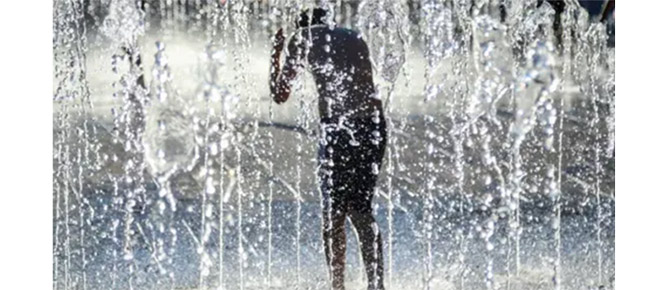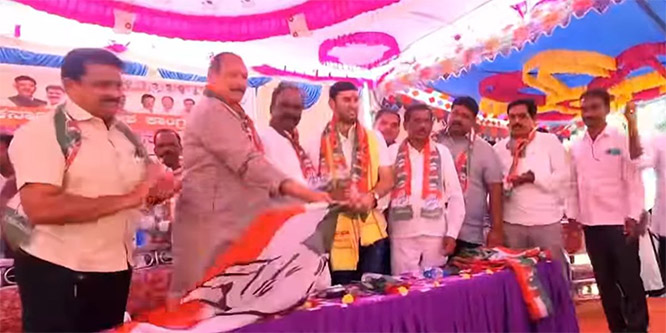In a bizarre protest, two female students of a teachers training college in Kerala’s Kozhikode posted their topless pictures on Facebook recently after their professor criticised the new generation women for not dressing properly and asked them not displaying their chests like "slices of watermelon".
Though Facebook has taken down the pictures and blocked the two girls from the social networking site, the campaign has already caused quite a stir, triggering both positive and negative responses.
The campaign against the professor of Farook Training College was launched by a man called Vishnu, who shared his partner Arathy SA’s topless picture on Facebook in protest. Following the footsteps, Thiruvananthapuram-based Diya Sana posted pictures of a topless woman holding watermelons on the social networking site. The Facebook subsequently blocked both the accounts.
Prof. Jouhar Munavvir, who teaches social science at the college, had invited wrath after a voice clip allegedly from his speech during a family counselling went viral on social media.
“I am a teacher of a college where 80 per cent of the students are girls and of that, a majority are Muslims. These girls are not wearing the dress as per the religious tradition. They are not covering their chests with hijab. But showing part of it is like a slice of red watermelon being displayed,” he has been heard saying in the Malayalam language clip.
The professor lashed out at girls wearing leggings, saying the girl students hold purdah deliberately up to show off the leggings. He went on to warn them that this kind of immoral dress style will lead them to lose both physical and spiritual worlds.
Meanwhile, the Students Federation of India (SFI) on Monday took out a march to the Farook Training College demanding strict action against the professor for his controversial remarks.
College principal C A Jawahar said action would be taken against the teacher only if the students file a formal complaint. “The statement likening a woman’s body to a water melon was made during a speech he delivered to a group of families a few weeks ago. The video circulating on social media has only a selected clipping from the event and not the entire one,” he said.
Though the students had taken out a march outside the college, none of them made any formal complaint. “We will decide about taking action only after reviewing the incident,” the principal said.








Comments
Well said Jouhar Sir. You really dare to speak the truth. SFI don't know anything but protest. Non-sense. Truth, always becomes "contraversial" only to bad minded people. Kudos Jouhar Munavvir Sir.
Add new comment